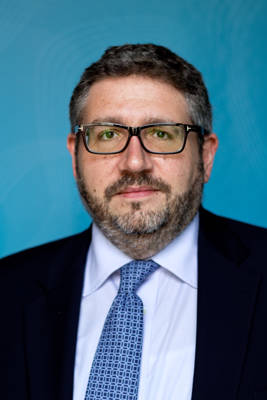The PRIO Cyprus Centre first produced a report on the economic benefits of a solution to the Cyprus problem (The Day After) in March 2008, among renewed hopes for a settlement. It broke a strong taboo by highlighting that a settlement of the Cyprus problem could bring economic benefits. The next major breakthrough came after The Peace Dividend Revisited, published by the PCC in May 2014. These have paved the way for the understanding that now exists among professionals that a solution will be good for business. The "final frontier" regards bringing that understanding to the general public on both sides of the island. This effort began in 2019, through the PCC initiative Delivering the Cyprus Peace Dividend, a research project funded by the EU Commission, leading to a PCC Report co-authored by previous authors Mustafa Besim and Fiona Mullen and Michalis Florentiades, a respected economist, former Chief Economist at Hellenic Bank and now working in the non-banking sector, which updates The Cyprus Peace Dividend Revisited (PCC 2014). The new effort includes the qualitative arguments (why there will be a peace dividend) in addition to the quantitative arguments (how big the peace dividend will be). A shift in emphasis towards how to deliver the Peace Dividend is therefore placed, as is addressing the concerns of ordinary Cypriots about the economic impact of a settlement.
At the same time, a further shortcoming was noted in need of tackling. It was realized that there is also a general lack of understanding at the political level about the economic issues surrounding a settlement. This lack of understanding has tended to impede the technical assistance being undertaken by the EU institutions, the World Bank and the IMF. This, in turn, raises the economic risks of a settlement. If there is a greater public understanding about the need for such assistance, it ought to be easier for the technical assistance teams to do their work. Finally, with an eye to the July 2018 UN Security Council resolution calling for a gender-sensitive socioeconomic impact assessment and the European Council conclusions of 10 December 2018 on women, peace and security, the growing body of research pointing to the positive impact on both peace settlements and economic outcomes of gender equality and diversity needed also be considered. To these ends, the PCC was awarded a contract by the EU to conduct research and produce a report, in three languages (English, Greek, and Turkish), that gives greater weight to qualitative arguments, and which is backed up by a solid communications campaign, designed to have a greater impact among the general public.
Videos
Documents
- Infographic E Delivering the Cyprus Peace Dividend (.pdf)
- Infographic G Επιτυγχάνοντας το Μέρισμα της Ειρήνης στην Κύπρο (.pdf)
- Infographic T Kıbrıs’ta Barışın Sağlayacağı Getirileri Elde Etmek (.pdf)
- Presentation Delivering the Cyprus Peace Dividend 05.02.20 (.pdf)
- Press Release 3 languages Delivering Cyprus Peace Dividend (.docx)
- Report E Delivering the Cyprus Peace Dividend (.pdf)
- Report G Επιτυγχάνοντας το Μέρισμα της Ειρήνης στην Κύπρο (.pdf)
- Technical Appendix Delivering the Cyprus Peace Dividend (.pdf)
- Report T Kıbrısta Barışın Sağlayacağı Getirileri Elde Etmek.pdf






